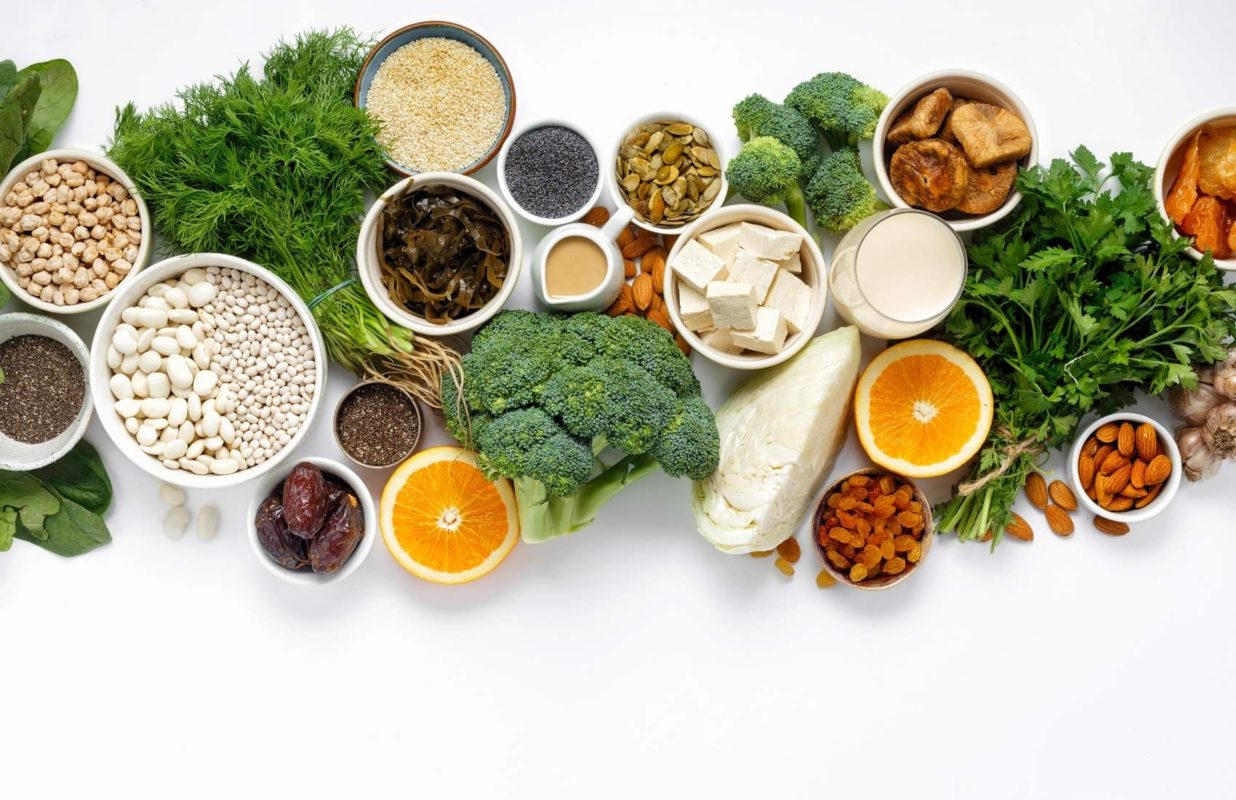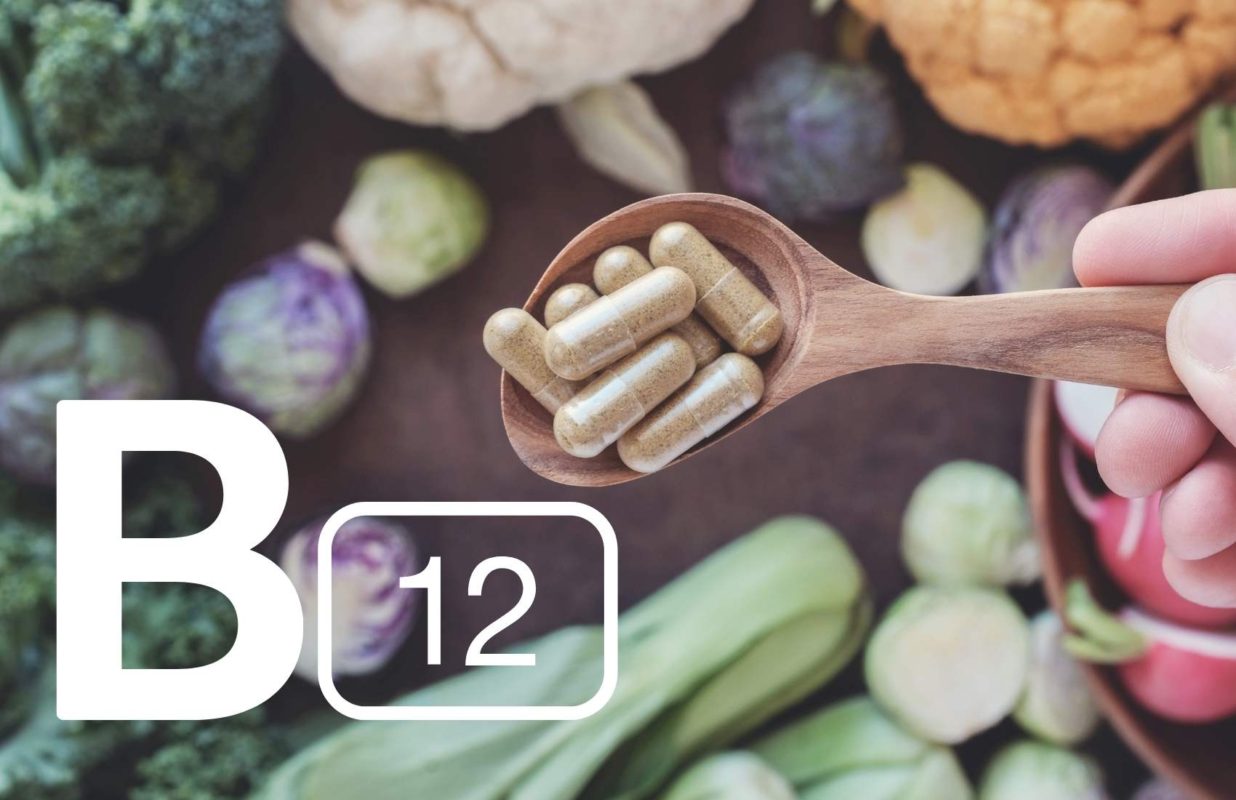LEARN MORE
The Vegan Diet – How to Get Enough Vitamins and Nutrients
To function effectively on a vegan diet, the human body requires a variety of nutrients, including protein, fat, carbohydrates and numerous vitamins and minerals. Some of them we may manufacture ourselves, while others must be obtained from the outside world (the sun, supplements and food).
One general concern about the vegan diet is whether they provide your body with all of the vitamins and minerals it requires. The positive is that it is entirely possible to obtain all the nutrients you need as a vegan; however, it can be quite limited. It only takes some nutritional knowledge, planning and basic food preparation skills to meet daily dietary requirements.
In today’s article, we will address several vital nutrients and supplements that you may need on a vegan diet and where to find them.
Protein For a Vegan Diet
One of the most common questions vegans generally get asked is, “where do you get your protein?”. While many people may know that getting enough protein from plants is possible, many do not.
Protein is found throughout the plant kingdom, particularly in legumes which include lentils. Lentils are grouped with beans, peas, peanuts and soy foods such as tofu. These foods are high in protein, which makes them a healthy substitute for meat. While nuts, seeds, whole grains and vegetables provide protein. Fruit contains low amounts of protein.
Omega-3 Fatty Acids
DHA and EPA are two long-chain omega-3 fatty acids. They are not deemed essential because your body can make them from Alpha-linolenic acid (ALA). Alpha-linolenic acid (ALA) is the only essential omega-3 fatty acid, meaning you can only get it from your diet.
Long-chain omega-3 fatty acids are structurally crucial for the brain and eyes. Sufficient dietary levels of long-chain omega-3 appear to be essential for lowering the risk of inflammation, breast cancer, depression, as well as attention deficit hyperactivity disorder (ADHD) and brain development.
Vegans can get DHA and EPA directly from algae-based supplements. DHA and EPA can also be produced by our bodies from ALA, another type of omega-3 fatty acid found in chia, flaxseed, and walnuts. Many people, however, have low conversion rates, and without knowing how well your body converts ALA to DHA and EPA, it may be a good idea to take a supplement.
Calcium
Calcium is a mineral that is essential for bone and tooth health. It is also necessary for heart health and muscle function. Many people mistakenly believe that to get enough calcium, they must consume dairy products. Fortunately, calcium can be found in a variety of plant foods.
Calcium-rich plant foods include kale, broccoli, watercress, bok choy, mustard greens, calcium-set tofu and chickpeas. Calcium-fortified plant milk or juices are also plant sources of calcium. However, studies have shown that most vegans do not get enough calcium. Supplements should be used if they cannot consume an adequate amount of calcium that cannot be achieved through diet or fortified foods alone.

Iron
We require iron to make new DNA and to assist red blood cells in transporting oxygen throughout our bodies. It is also needed for energy metabolism.
While red meat is a good source of iron, it is also present in plant foods. The two forms of iron are heme and non-heme. Heme iron is only found in animal products, whereas non-heme iron is found in plants and is more difficult for the body to absorb than heme iron.
Chickpeas, black-eyed peas, kidney beans, white beans, soybeans, tofu, lentils, spinach, fortified cereal, sea vegetables, swiss chard and cashews are all good vegan iron sources.
Zinc
Zinc is a mineral found in protein-rich foods that is essential for growth, development, and cellular metabolism.
Fortified cereal, wheat germ, tahini, peanuts, cashews, pumpkin seeds and baked beans are all plant-based sources of zinc. Tempeh, tofu, lentils, chickpeas, quinoa and oatmeal contain trace amounts of it.
Vegans must consume more zinc than meat-eaters because our bodies do not absorb zinc very well from plant foods as they do from animal foods. To meet zinc requirements, vegans must eat a variety of these foods daily. Those with low blood levels of zinc or symptoms of a deficiency should consider taking a daily supplement.
B12 For a Vegan Diet
Vitamin B12 is required for many bodily functions, including DNA synthesis, neurological function, protein metabolism and the formation of oxygen-transporting red blood cells. Anaemia, nerve damage, fatigue and neurological problems such as fatigue and memory loss can result from a deficiency.
According to many studies, anyone can have low vitamin B12 levels. However, vegans and vegetarians are at a higher risk of deficiency. This appears to be incredibly accurate for vegans who do not take any supplements.
Vegans can only achieve the requisite levels through the consumption of B12-fortified foods or the use of a vitamin B12 supplement. Plant milk, soy products, breakfast cereals, and nutritional yeast are all examples of B12-fortified foods. All vegans must get enough vitamin B12. Vegans who are unable to meet the recommended daily intake through fortified foods should take a daily supplement.

The Two Forms of B12
Supplements containing B12 are derived from two sources which are cyanocobalamin and methylcobalamin.
Cyanocobalamin is a synthetic form of B12 that is not found in nature but is commonly used in supplements. It is more cost-effective and stable than other forms of vitamin B12. When you consume cyanocobalamin, it is converted into either methylcobalamin or adenosylcobalamin, which are two active forms of vitamin B12 in humans.
Methylcobalamin is a natural form of vitamin B12 that can be acquired from food or supplements.
Cyanocobalamin may absorb better, but methylcobalamin has a higher retention rate. However, methylcobalamin should be combined with adenosylcobalamin for maximum results.
Vegan Diet – Vitamin D
We can obtain vitamin D from food such as fish, cod liver oils, dairy products, fortified milk, cereals and eggs. Yet, most of the vitamin D we get is made by our bodies which is made from direct sunlight within the skin until winter gets closer and vitamin D levels eventually decrease.
However, vegans are also more likely to have a vitamin D deficiency than individuals on other diets. Since it is even more difficult for vegans to get the right amount of vitamin D from food alone, supplements are the best way to boost your vitamin D intake. Supplements generally come in two forms – vitamin D2 (synthetic form) or D3, with D3 being more effective at increasing vitamin D levels compared to vitamin D2.
Click here to take a look at the Vitamin D Food Sources for Vegans.
Vegan diets that are well-planned can meet your nutritional requirements in order to live a healthy vegan lifestyle.
However, certain nutrient requirements may be difficult to meet solely through fortified food and dietary and supplementation should be considered.
If you are a vegan and experiencing any nutritional deficiency symptoms, it would be advised to get your blood levels checked to find out what your body is nutritionally lacking.

